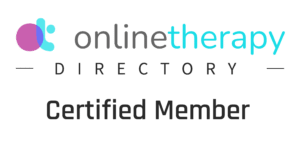Denver therapists for self-harm and self-injury
Get help overcoming what’s causing your pain.
Therapy can help you overcome self-harm and cutting
Self-harm is a behavior in which people intentionally hurt themselves without suicidal intent. It can take many forms, such as cutting, burning, scratching, hitting, or biting. More recently, self-harm content on TikTok has been making headlines for how visible and accessible it is to teens. Self-harm is often used as a way to cope with difficult emotions, such as anger, sadness, or anxiety, and it’s been known to express feelings of self-hatred or worthlessness for some people.
Self-harm and self-injury can affect people of all ages, but it’s most common for it to start with adolescents and young adults. Estimates say that up to 20% of teenagers have engaged in self-harm at some point in their lives. Self-harm is more common among girls than boys, and it’s also more common among people who have a history of trauma or abuse of some kind, which is why meeting with a therapist in Denver can help people overcome this behavior.
There is no one reason why someone might self-harm, and each person’s experience is unique. Most people do it to cope with emotional pain, while others do it to relieve stress or even find an alternative to boredom. Some people self-harm as a way to punish themselves, while others do it to feel in control.
Therapy can be a helpful way to understand self-harm behaviors and develop productive, practical coping mechanisms. While self-harm can seem unfamiliar and create causes for concern, our therapists helped countless teens and adults in the Denver area overcome self-harm by helping to address the trauma or life experiences that cause it.
How therapy can help you
If you’re struggling with self-harm, you’re not alone. Here are some ways that our Denver therapists can help you:
- Understanding your self-harm behavior: We can help you understand the reasons why you self-harm. Our Denver therapists can help you identify the triggers that lead to self-harm, as well as the emotions and thoughts that you experience before, during, and after self-harming.
- Developing healthier coping mechanisms: We can help you develop healthier ways to cope with difficult emotions and situations. Our therapists can teach you skills such as relaxation techniques, stress management, and assertiveness training.
- Building self-esteem: We can help you build your self-esteem and self-worth. Through therapy, we can challenge negative thoughts and beliefs about yourself, and help you develop a more positive outlook on life.
- Supporting you through recovery: We’ll provide you with support and guidance as you work to overcome self-harm. We’re trained to help you stay on track and motivated, and deal with any setbacks that may come up along the way.


Common types of therapy for self-harm and cutting
- Cognitive behavioral therapy (CBT): CBT helps people identify and change the negative thoughts and behaviors that contribute to self-harm.
- Dialectical behavior therapy (DBT): DBT is a type of CBT that is specifically designed to help people with borderline personality disorder, which is a mental health condition that is often associated with self-harm. It helps people develop skills that can prevent self-harm and injury.
- EMDR: When working through past trauma, EMDR is one of the most effective and requested forms of therapy that we offer.
- IFS: A powerful form of therapy that has been shown to improve symptoms of anxiety, depression, body image, trauma, health conditions, obsessive tendencies, and more, which can contribute to self-harm and cutting.
Other Specialties

Healing may not be so much about getting better, as about letting go of everything that isn’t you – all of the expectations, all of the beliefs – and becoming who you are.
Rachel Naomi Remen
Meet our therapists
As a therapist-owned practice, we care about helping you heal, grow, and thrive. We take a client-focused approach to counseling and approach each session with a commitment to your progress and growth.
Availability
We’re always accepting new clients at our conveniently located offices in Denver, Greenwood Village, Lone Tree, and Arvada. All of our therapists can meet with clients online.
We specialize in you
You are welcome here. Because we have a large team with a wide range of specialties and trainings, we work with clients of all ages, backgrounds, and life stages.
We can match you with a male or female therapist who matches your goals, location, and schedule. If you have a preference for gender, age, religious background, or a person with a specific type of training or life experience, we can match you with a therapist you feel comfortable with.
Trained in effective therapy modalities
To support your mental health journey, our team is trained in some of the most effective forms of therapy available today, including EMDR, Ketamine-Assisted Psychotherapy, Brainspotting, CBT, DBT, and IFS.
Whether you’re looking for help with anxiety, depression, trauma, or want to better understand your relationship and attachment styles, we can help.
Insurance information
We’re out of network with insurance and Tricare and are unable to take Medicaid or Medicare.
Unlike many Denver therapy practices, we don’t charge separate intake or administration fees or charge more for your first session or specialized therapy methods like EMDR.
Get matched with a therapist
Contact us today, and one of our therapists will reach out to you directly, usually the same day.




























































